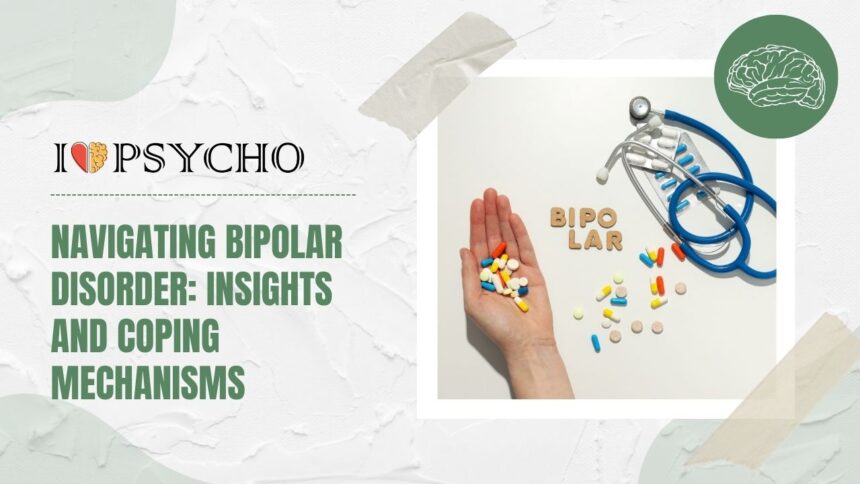Navigating the rollercoaster of emotions and challenges that come with bipolar disorder can be a daunting journey. From extreme highs to crushing lows, this mental health condition impacts millions of individuals worldwide. In this blog post, we’ll delve into understanding the intricacies of bipolar disorder, explore coping mechanisms, discuss treatment options, and offer support for both those living with the condition and their loved ones. Let’s embark on a journey together to shed light on this often misunderstood aspect of mental health.
Understanding Bipolar Disorder
Bipolar disorder, also known as manic-depressive illness, is a mental health condition characterized by extreme mood swings. Individuals with bipolar disorder experience intense emotional states that can disrupt their daily lives. These mood swings can range from manic episodes of elevated energy and euphoria to depressive episodes of sadness and hopelessness.
Understanding bipolar disorder involves recognizing the complexity of these mood shifts and their impact on behavior and thoughts. It’s essential to acknowledge that this condition is not just about occasional changes in mood but rather a chronic struggle that requires ongoing management.
Research suggests that genetic factors, brain structure, and neurotransmitter imbalances play a role in the development of bipolar disorder. While the exact cause remains unclear, early diagnosis and intervention are crucial for effective treatment strategies.
Different Types of Bipolar Disorder
Bipolar disorder isn’t a one-size-fits-all condition; it comes in different forms. The most common types include Bipolar I, Bipolar II, Cyclothymic Disorder (Cyclothymia), and other specified and unspecified bipolar disorders. Each type has its unique characteristics, but they all share the hallmark of extreme mood swings.
Bipolar I is defined by manic episodes that last at least seven days or are severe enough to require immediate hospitalization. On the other hand, Bipolar II involves depressive episodes alternating with hypomanic episodes that are less intense than full-blown mania but still disruptive.
Cyclothymic Disorder is milder yet chronic, featuring numerous periods of hypomanic symptoms and depressive symptoms lasting for at least two years in adults (one year in adolescents). Other specified and unspecified bipolar disorders encompass cases where symptoms don’t fit neatly into the established categories.
Signs and Symptoms to Look Out For
Navigating through the complexities of bipolar disorder can be challenging, but being aware of the signs and symptoms is key to early detection and effective management. It’s essential to recognize the shifts in mood that individuals with bipolar disorder may experience. These mood swings can range from extreme highs (mania or hypomania) to intense lows (depression).
During a manic episode, one might feel unusually euphoric or irritable, have racing thoughts, engage in risky behaviors, or experience a decreased need for sleep. On the other hand, during a depressive episode, feelings of sadness, hopelessness, fatigue, changes in appetite or sleep patterns are common.
Other signs include difficulty concentrating, irritability or agitation, impulsivity, and even suicidal thoughts. Paying attention to these subtle changes in behavior can help identify when someone may be struggling with bipolar disorder. Remember that seeking professional help is crucial for accurate diagnosis and developing an appropriate treatment plan tailored to individual needs.
Treatment Options and Medications
When it comes to managing bipolar disorder, treatment options and medications play a crucial role in stabilizing moods. Medications such as mood stabilizers, antipsychotics, and antidepressants are commonly prescribed by healthcare professionals to help regulate symptoms.
It’s essential for individuals diagnosed with bipolar disorder to work closely with their healthcare provider to find the right combination of medications that work best for them. This may involve some trial and error as what works for one person may not necessarily be effective for another.
In addition to medications, therapy is often recommended as part of the treatment plan. Therapy can provide valuable support in learning coping strategies, improving communication skills, and developing healthy habits that can aid in managing the ups and downs of bipolar disorder effectively.
Remember that finding the right treatment approach may take time and patience. It’s important to stay committed to your treatment plan and communicate openly with your healthcare team about any concerns or changes you may experience along the way.
The Importance of Therapy
Therapy plays a crucial role in the management of bipolar disorder, providing individuals with a safe space to explore their thoughts and emotions. Through therapy, individuals can gain valuable insights into their triggers and patterns, helping them better understand their condition.
A therapist can assist in developing coping strategies tailored to the individual’s needs, empowering them to navigate challenging situations more effectively. Therapy also offers a supportive environment for processing past traumas or unresolved issues that may contribute to mood swings and instability.
In addition to traditional talk therapy, techniques such as cognitive behavioral therapy (CBT) or dialectical behavior therapy (DBT) have been shown to be effective in managing bipolar symptoms. These therapeutic approaches focus on changing negative thought patterns and behaviors while promoting healthy coping mechanisms.
Regular sessions with a skilled therapist can help individuals track their progress, identify early warning signs of relapse, and make necessary adjustments to their treatment plan. By incorporating therapy into their overall care routine, individuals with bipolar disorder can enhance their self-awareness and build resilience for long-term stability.
Coping Mechanisms for Managing Bipolar Disorder
Living with bipolar disorder can present unique challenges, but there are coping mechanisms that can help manage the highs and lows. One effective strategy is maintaining a consistent routine. This includes regular sleep patterns, healthy eating habits, and scheduled activities to provide stability.
Engaging in regular exercise has been shown to have a positive impact on mood regulation. Whether it’s going for a walk, practicing yoga, or hitting the gym, physical activity can help reduce stress and improve overall well-being.
Mindfulness practices such as meditation or deep breathing exercises can also be beneficial in managing symptoms of bipolar disorder. By staying present in the moment and focusing on breathing techniques, individuals may find relief from racing thoughts or intense emotions.
Building a strong support network is crucial for those navigating bipolar disorder. Surrounding oneself with understanding friends and family members who offer empathy and encouragement can make a significant difference in one’s mental health journey.
Exploring creative outlets like art therapy, music, or journaling can serve as valuable tools for self-expression and emotional release. Finding ways to channel emotions constructively can aid in processing feelings associated with bipolar disorder effectively.
Supporting a Loved One with Bipolar Disorder
Supporting a loved one with bipolar disorder can be challenging yet incredibly rewarding. It’s important to educate yourself about the condition, understanding that it involves mood swings beyond their control.
Listening without judgment and offering your unwavering support can make a world of difference. Encouraging them to stick to their treatment plan and attend therapy sessions is crucial for their well-being.
Be patient during episodes and offer reassurance that you are there for them no matter what. Help them establish healthy routines and coping mechanisms that work best for them.
Sometimes just being present and showing empathy can mean more than words ever could. Remember, supporting someone with bipolar disorder requires compassion, understanding, and above all, unconditional love.
Breaking the Stigma Surrounding Mental Health
Breaking the stigma surrounding mental health is crucial in creating a more understanding and supportive society. It’s important to recognize that mental health conditions, such as bipolar disorder, are just like any other medical condition – they require treatment and support. By educating ourselves and others about mental health, we can help combat misinformation and stereotypes.
One way to break the stigma is by openly discussing mental health without judgment or shame. Sharing personal experiences can humanize the struggles individuals with bipolar disorder face daily. Additionally, advocating for policies that improve access to mental health care can make a significant impact in reducing stigma.
Encouraging empathy and compassion towards those dealing with mental health challenges is key. Instead of labeling individuals based on their condition, it’s essential to treat them with respect and understanding. By promoting acceptance and inclusivity, we can create a safer environment for everyone to seek help when needed.
Conclusion
Navigating Bipolar Disorder is a journey that requires understanding, patience, and support. By recognizing the signs and symptoms, exploring treatment options, prioritizing therapy, implementing coping mechanisms, and offering unwavering support to loved ones facing this mental health condition – together we can break the stigma surrounding bipolar disorder.
Remember, seeking help is not a sign of weakness but rather a courageous step towards managing your mental health effectively. With the right tools and resources in place, those living with bipolar disorder can lead fulfilling lives and thrive despite their challenges.
Let’s continue to educate ourselves and others about mental health issues like bipolar disorder so that no one feels alone on their journey towards healing. Together, we can make a difference in creating a more empathetic and understanding society for all individuals dealing with mental health conditions.









